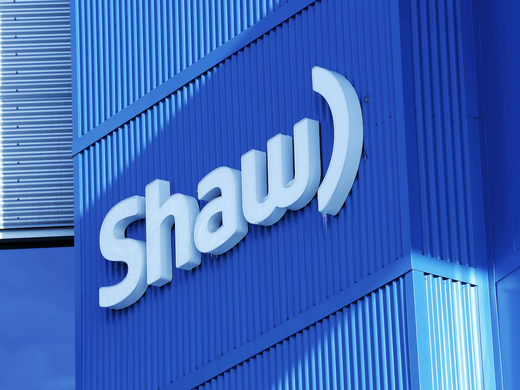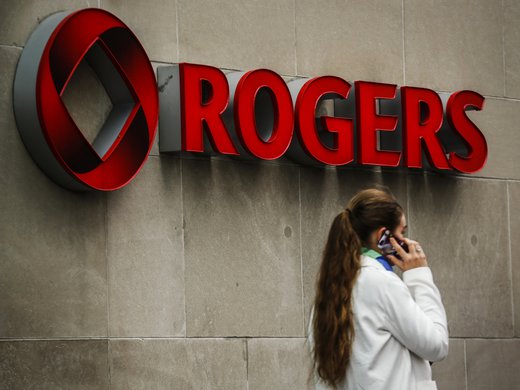The $20-billion blockbuster deal between Rogers Communications Inc. and Shaw Communications Inc. appeared set to close after the Federal Court of Appeal killed the Competition Bureau’s renewed bid to block it. Even if the bureau raises the matter to the Supreme Court, there seems to be little chance of success for recovering its case. And Industry Minister François-Philippe Champagne will be hard-pressed to not give his blessing. But the regulation journey is not over for Rogers’s takeover of Shaw — the sixth-largest in Canadian history. There are serious headwinds still to face.
January 20, TekSavvy, Canada’s largest independent internet service provider, filed its own complaint with the Canadian Radio-television and Telecommunications Commission (CRTC) over the web of sweet deals between Rogers, Shaw and Vidéotron upon which the Competition Tribunal’s earlier ruling in favour of it rests. TekSavvy says the Rogers-Shaw deal effectively puts the rest of telecommunication players at an unfair disadvantage and will harm competition in Canada.
Even as the federal appeal court shut down the Competition Bureau’s appeal of the tribunal ruling, a new battleground is shaping up at the CRTC.
For their part, Rogers, Shaw and the tribunal say that their revised deal is pro-competitive. As part of the deal, Freedom Mobile — currently owned by Shaw — will be sold to Quebecor’s Vidéotron, thereby ensuring that a strong fourth mobile wireless competitor remains in British Columbia, Alberta and Ontario, they say. The steeper wholesale rate discounts, favourable network sharing arrangements and longer-than-usual terms in those deals will also allow Vidéotron to offer a bundle of wireless, internet access and television services able to compete head-on with the post-takeover Rogers and Telus in Alberta and British Columbia. Merger advocates claim people will have more choices.
We should be skeptical of such claims, however, and continue to cheer on the bureau’s failed appeal and TekSavvy’s complaint to the CRTC, because the same deals lauded as the key to the Rogers-Shaw takeover and Vidéotron’s future success may collide with the Telecommunications Act’s prohibition on Rogers giving “undue preference” to itself or others. More specifically, the special terms that Rogers has offered to Vidéotron are better than the CRTC-regulated wholesale offering available to other competitors.
TekSavvy’s complaint to the CRTC hinges precisely on the claim that Rogers has given undue preference both to itself and to Vidéotron just to get this deal past competition regulators. If its challenge succeeds, the special terms would be withdrawn and, in the tribunal’s own words, Vidéotron’s prospects as a strong competitor in British Columbia and Alberta would be in jeopardy and the cleverly crafted edifice that the tribunal invoked to justify the Rogers-Shaw deal could be thrown out by the CRTC.
That might not kill the deal, to be sure. Even if TekSavvy is successful, the CRTC is unlikely to move as quickly as needed to bring about that result. Consequently, even a victory for TekSavvy will be pyrrhic, because in the time that it takes the CRTC to decide the issue, the tribunal’s decision to bless a deal that should have been dead on arrival is likely to be left standing.
The likely outcome in that event is that Freedom Mobile under Vidéotron will have been gutted as a strong fourth mobile network operator. And independent internet service providers such as TekSavvy — who are already struggling to survive in the face of the incumbent cable and telephone companies’ protracted campaign to kill the very same wholesale access regime that the tribunal has made the centrepiece of its decision — will be either dead or more hamstrung than they are now.
There are two possible silver linings in all this: one, by accepting that this deal can only be saved through a web of sweet deals between Rogers and Vidéotron, the Tribunal has unintentionally acknowledged that the CRTC’s regulated wholesale access regime is broken. Hopefully, the new leadership of the CRTC will see the light and take steps to improve the commission’s wholesale access regime for mobile and internet services that almost everybody admits does not serve competition, competitors or Canadians well.
Second, with the Competition Act set to be reviewed starting next month, its shortcomings in the face of one of the biggest takeovers in Canadian history will be glaringly obvious. If that is so, then perhaps the short-term public interests of Canadians in a vibrant and competitive communications marketplace will have been sacrificed for a worthy cause — that is, a complete overhaul of the Competition Act and joint action between the bureau and the CRTC on any future communication deals of this type.
This article first appeared in The Globe and Mail.



